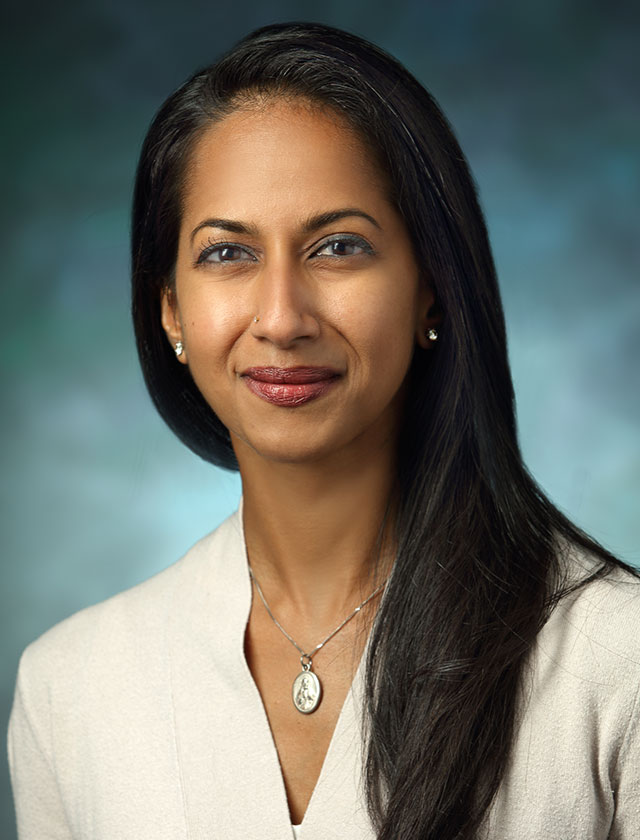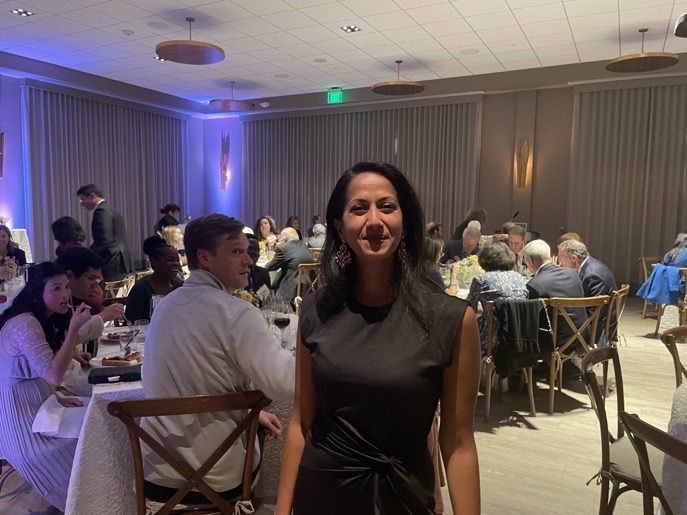Research Team
Gabriel Lopez-Cecetaite, Sc.M.
Gabriel is a recent Master of Science (ScM) graduate from the Johns Hopkins Bloomberg School of Public Health and joined the Umapathi lab as a Research Technician following his graduation from the program in May 2022. He received his BA in International Relations from Boston University and gained clinical experience working as a patient care technician at Beth Israel Deaconess Medical Center during his senior year. He has always been fascinated by the heart and circulatory system and hopes to attend medical school in the near future. In his free time, Gabriel enjoys running, biking, traveling, and trying to cook new recipes.

Research Investigating Heart Failure
Every year, approximately 550,000+ Americans are diagnosed with heart failure. Half of these patients die within 5 years of diagnosis. Despite advances in medical therapy the prevalence of heart failure continues to grow exponentially. This has led to patients experiencing substantial morbidity and mortality and highlights the urgent need to identify novel pathophysiological mechanisms and improved therapies.
Heart failure is associated with changes in cardiac metabolism with several lines of evidence suggesting that a major metabolic pathway in the heart, the Hexosamine Biosynthesis Pathway, exerts an impactful role. The product of the pathway is involved in the post-translational modification of cardiac proteins, a process known as O-GlcNAcylation, and plays a key role in the response of the heart to stress, regulating both health and disease.

We discovered chronic exposure to increased O-GcNAcylation causes heart failure, whereas decreased O-GlcNAcylation can protect the heart. However, work remains to develop detailed understanding of how O-GlcNAcylation contributes to heart health and disease.
Our lab hopes to bridge this gap in knowledge to refine our understanding of cardiac O-GlcNAcylation, metabolism and energetics to evolve the use of cardiac O-GlcNAc biology to discover heart failure mechanisms, diagnostics and therapeutics.
Research Projects
O-GlcNAcylation occurs on thousands of proteins in the heart and is regulated by only two enzymes, the O-GlcNAc Transferase or OGT (adds modification) and the O-GlcNAcase or OGA (removes modification). Myocardial O-GlcNAcylation is increased in failing hearts, but it was unknown if increased O-GlcNAcylation was a cause of heart failure. To answer this question, we developed novel lines of transgenic mice overexpressing either OGT, or OGA, in myocardium. OGT hearts have more OGN and these mice have myocardial hypertrophy, heart failure and die prematurely from arrhythmias. In contrast, OGA animals have less OGN and are protected against cardiac stress.
-
Both major clinical sub – types of heart failure (Heart Failure with Reduced Ejection Fraction and Heart Failure with Preserved Ejection Fraction) are associated with derangements in cardiac metabolism and energetics. Frequently in heart failure there is an impairment in fatty acid metabolism and a shift towards glucose oxidation with enhanced reliance in glucose utilization pathways like the HBP and an increase in O-GlcNAcylation. Our lab uses transgenic and pathologic murine models, metabolomic/proteomic data to studying the role of metabolites, preferential mitochondrial substrate utilization and energetic re-programming in heart failure.
-
Pathological hypertrophy is commonly antecedent to clinical heart failure. Myocardial O-GlcNAcylation is a more recently discovered mechanism causing pathological hypertrophy and heart failure. Our lab uses innovative genetic mouse models that control myocardial O-GlcNAcylation levels independent of cardiac stress, mass spectrometry and proteomics to understand the impact of O-GlcNAc on pro-hypertrophy and heart failure mechanisms.
-
Heart transplantation involves procurement of the donor cardiac allograft and subsequent implant into a recipient patient. The interval transit time can expose the donor heart to multiple stressors such as ischemia-reperfusion injury, hypothermia etc. The preservation of donor grafts is imperative to ameliorate ischemia related cellular damage prior to organ transplantation with many solutions currently in existence. O-GlcNAcylation has been reported to attenuate ischemia-reperfusion injury in the cardiovascular system and we are developing a procurement solution that may improve ischemia-reperfusion injury in transplanted grafts.
-
As heart failure diagnoses and therapies expand the need for precision medicine is growing. Proteins are powerful mediators of disease and can serve as clinical biomarkers, used to diagnose and guide treatment. We study the role of O-GlcNAc modified proteins in heart failure patients using a bedside to bench approach with the aim of developing a novel precision proteomic platform for heart failure patients.
-
The Sodium-Glucose Transporter 2 inhibitors (SGLT2i) have dramatically changed the treatment of clinical heart failure. However, the mechanistic, cardiac, targets of these drugs are poorly understood. Our lab studies the role of SGLT2i, the Hexosamine Biosynthesis Pathway and O-GlcNAcylation in heart failure.
Selected Publications
- Stawiarski K, Avery R, Strout S, Umapathi P. Risks of paxlovid in a heart transplant recipient. J Heart Lung Transplant. 2023 Jan;42(1):30-32.
doi: 10.1016/j.healun.2022.08.029. Epub 2022 Sep 8. PubMed PMID: 36344373; PubMed Central PMCID: PMC9452411. -
Umapathi P, Mesubi OO, Banerjee PS, Abrol N, Wang Q, Luczak ED, Wu Y, Granger JM, Wei AC, Reyes Gaido OE, Florea L, Talbot CC Jr, Hart GW, Zachara NE, Anderson ME. Excessive O-GlcNAcylation Causes Heart Failure and Sudden Death. Circulation. 2021 Apr 27;143(17):1687-1703.
doi:10.1161/CIRCULATIONAHA.120.051911. Epub 2021 Feb 17. PubMed PMID: 33593071; PubMed Central PMCID: PMC8085112.
- Mesubi OO, Rokita AG, Abrol N, Wu Y, Chen B, Wang Q, Granger JM, Tucker-Bartley A, Luczak ED, Murphy KR, Umapathi P, Banerjee PS, Boronina TN, Cole RN, Maier LS, Wehrens XH, Pomerantz JL, Song LS, Ahima RS, Hart GW, Zachara NE, Anderson ME. Oxidized CaMKII and O-GlcNAcylation cause increased atrial fibrillation in diabetic mice by distinct mechanisms. J Clin Invest. 2021 Jan 19;131(2).
doi: 10.1172/JCI95747. PubMed PMID: 33151911; PubMed Central PMCID: PMC7810480. - Luczak ED, Wu Y, Granger JM, Joiner MA, Wilson NR, Gupta A, Umapathi P, Murphy KR, Reyes Gaido OE, Sabet A, Corradini E, Tseng WW, Wang Y, Heck AJR, Wei AC, Weiss RG, Anderson ME. Mitochondrial CaMKII causes adverse metabolic reprogramming and dilated cardiomyopathy. Nat Commun. 2020 Sep 4;11(1):4416.
doi: 10.1038/s41467-020-18165-6. PubMed PMID: 32887881; PubMed Central PMCID: PMC7473864.



